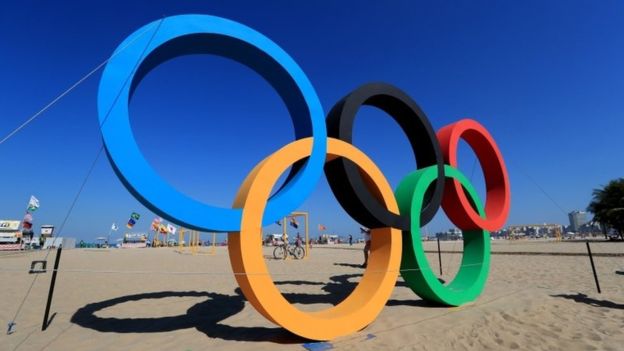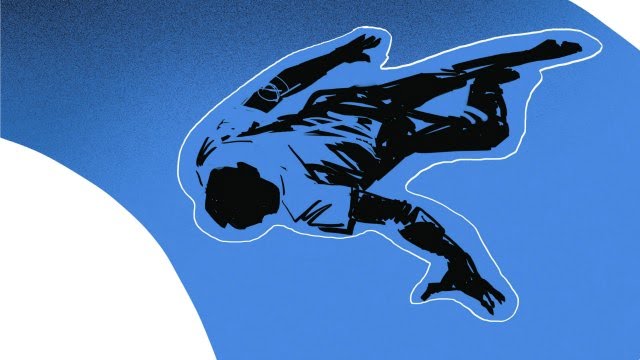
The future of a drug that can prevent HIV, stories from Rio ahead of the Olympics and self-service checkouts creating criminals make headlines.
NHS England said local councils should provide the drug pre-exposure prophylaxis (Prep) because they are in charge of preventative health but the High Court ruled that it should be done through the health service.
The Times says NHS England warned that the decision meant it might not be able to afford other treatments, such as drugs for children with cystic fibrosis, stem cell transplants for a rare blood cancer and a prosthetic knee for amputees, and would appeal.
The paper says NHS England made an “unusually blunt statement” of the need for drug rationing, but campaigners accused the NHS of seeking to pit patients against one another.
“Advocates argue that Prep will ultimately pay for itself by preventing the £360,000 lifetime cost of treating someone with HIV. Studies predict that it will prevent thousands of infections even if some men abandon condoms,” says the Times.
“NHS England was preparing to offer funding for the treatment but in March abruptly changed course, saying that legal advice showed it had no power to pay for preventative treatments.”
The Mail calls it a “skewed sense of values” with the NHS told to give out a £5,000-a-year lifestyle drug as vital cataract surgery is rationed.
“The drug would be given to up to 10,000 gay men who don’t have HIV but are at high risk of being infected through unprotected sex,” reports the Mail.
“But critics, including one Aids charity, warn it is a strategy ‘fraught with dangers’. They say it could encourage men to have sex with multiple partners without condoms and may even lead to higher HIV rates as it is not 100% effective.”
The Telegraph says the “unprecedented move” is a victory for the National Aids Trust which challenged NHS England’s claim.
Similarly, the Guardian says: “Aids campaigners are celebrating a watershed victory after the High Court ruled that NHS England can pay for a ‘game-changer’ drug that prevents people from being infected with HIV by their partners.”
NHS England said the estimated cost of funding the drug would be between £10m and £20m a year if it loses its appeal, states the i.
Prevention better than cure
In a leading article, the Times says it is welcome that the NHS will investigate drugs that stop HIV infection.
“Safe sex has been widely advocated for at least three decades and the Aids problem has not gone away,” it declares. “Public understanding and treatment have improved, but too many people in Britain are still HIV-positive.
“Prevention is better than cure goes the old adage. It might be cheaper too.”
Oliver Duff, editor of the i, likewise argues that preventing disease is much cheaper than treating it.
“Beware those moralising about ‘lifestyle choices’ – we have heard such arguments on abortion,” he says. “Roughly 6,000 people test positive for HIV in Britain every year.
“About half of them are gay or bisexual men. Prep reduces the risk of HIV infection by 86%. Imagine the headlines if we had a drug that could do that to any cancer.”
Eye-catching headlines
- Stake in Sotheby’s heralds a cultural revolution: Chen Dongsheng, the multi-millionaire Chinese businessman whose wife, Kong Dongmei, is Mao Zedong’s granddaughter, has just become the biggest shareholder in Sotheby’s – Times
- Fish and chips out in cold as salads become pub favourite: For years, fish and chips has been a staple item on British pub grub menus but now a report has found that it has been overtaken by salad – Telegraph
- Raccoon, hornet, cabbage… EU bans 37 invaders: The North American raccoon, an Asian hornet and an American cabbage are among 37 invasive species that will be banned from being brought into the UK from today when new EU regulations come into effect – Guardian
Keep your mouth closed
With the Olympic Games nearly upon us – and the sport yet to start – the news pages run several stories from Rio.
The Times reports that a 16-month study by health experts shows that the waters of the city’s Guanabara Bay are still full of raw sewage, superbacteria and rubbish.
The risk of infection even stretches to the golden sands of Ipanema and Copacabana’s beaches, the scientists warned.
“The view across Rio’s bay may be one of the most breathtaking in the world but scientists have strict advice for any sailors, swimmers and tourists who dive in during the Olympics: keep your head above the water and your mouth closed,” it says.
“The danger will be worst for Olympic canoeists competing on the city’s lagoon and sailors putting out of the Gloria Marina, where raw sewage from storm drains and even hazardous medical waste have been found.”
Titled “Labour Olympics”, Morland’s cartoon in the Times has Jeremy Corbyn swimming past a distinctly queasy-looking leadership challenger Owen Smith in polluted waters, saying: “Keep your mouth shut if you know what’s good for you!”
 Image copyrightPA
Image copyrightPAThe Telegraph discloses that Dame Judi Dench has been chosen to play a key role in Friday night’s Opening Ceremony, reading a poem about Brazil’s natural environment.
The paper also has a story about British archer Patrick Huston who will not be able to wear his lucky flat cap because of the requirements of Team GB’s kit provider Adidas.
He says: “Adidas supports the British Olympic Association massively through everything we do and part of that is we have to wear Adidas headgear.
“However, I’ve looked through the entire range and I can’t see a flat cap anywhere.”
The company said Huston had “generally been very positive about the kit”.
The Sun reveals that top GB swimming hope Adam Peaty was so scared of water as a child that he used to shake in the bath
Unexpected item…
The Telegraph reports that academics have found that self-service tills are making criminals of “normally honest” shoppers who resort to theft because it is so easy and the technology so frustrating.
“Although shops may think they are saving money by ditching staff for automated systems, in fact the amount of money lost through theft rockets after the introduction of self-scanning, according to a report from criminologists at the University of Leicester,” it says.
The Telegraph comments that the supermarket automatic checkout is tempting shoppers to take goods without paying for them like the serpent proffering an apple in the Garden of Eden.
 Image copyrightPA
Image copyrightPA“It is not that people set out to become thieves; most of us strongly disapprove of shoplifting,” it says.
“But automatic tills are so hard to operate without the system failing, or chanting ‘unexpected item in the bagging area’ repeatedly in alien tones that the hapless customer is put into a state of high dudgeon.
“Of course it’s wrong, but by then the Tempter has won the ear of the wronged shopper. So the automated checkout becomes a force for evil. It is less a helpmeet, more a dishonesty box.”
[Source:- BBC]





